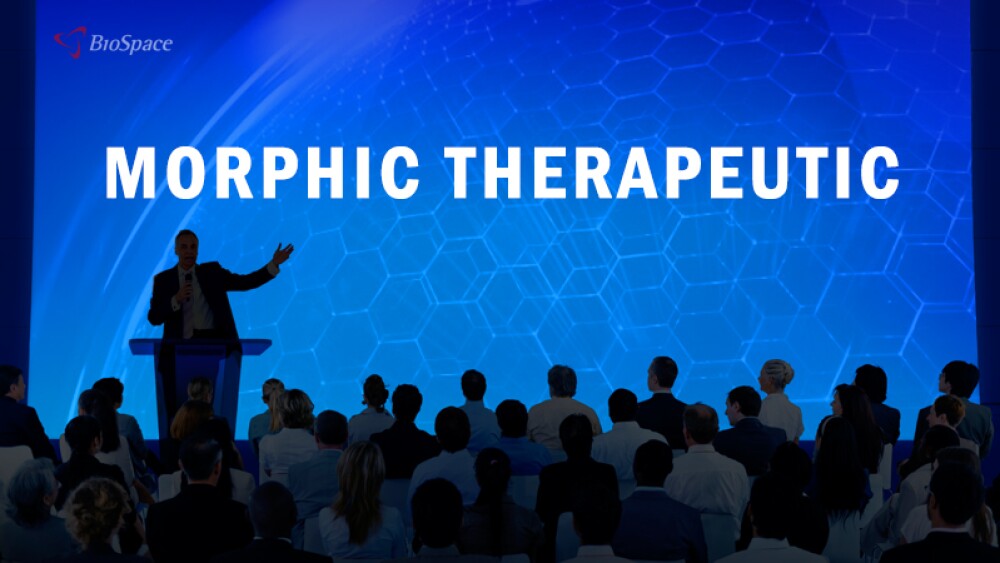January 9, 2017
By Mark Terry, BioSpace.com Breaking News Staff
Morphic Therapeutic is translating work from Timothy Springer’s laboratory. Springer, the company’s founder, is the Latham Professor at Harvard Medical School and Boston Children’s Hospital, and has been developing new therapies for immunological, fibrotic, neoplastic and vascular diseases.
Springer discovered integrins in the 1980s, which led to six injectable integrin therapies approved for multiple sclerosis (MS), ulcerative colitis, Crohn’s disease, plaque psoriasis, acute coronary syndrome and complications during percutaneous coronary intervention.
Integrins are receptors found on the surface of approximately 90 percent of human cells. Although their role is not completely understood, they are believed to play a part in cell survival, differentiation and migration.
“This is a tremendously exciting time in drug development, when scientific understanding has advanced significantly, creating a clear path forward for effective targeting of the integrin family using rationally designed small molecules,” said Praveen Tipirneni, Morphic’s president and chief executive officer, in a June 2016 statement.
Company Leadership
Tim Springer—founder, board member, scientific advisory board. Springer discovered integrins and ligands in the 1980s while an immunologist and biophysicist at Harvard Medical School and Boston Children’s Hospitals. He has formed LeukoSite and Scholar Rock, in addition to Morphic.
Cubist Pharmaceuticals .
Bruce Rogers—chief scientific officer. Most recently, Rogers was head of Neuro-Opportunities at
Pfizer .
Alex Lugovskoy—chief development officer. Prior to joining Morphic, Lugovskoy was vice president of therapeutics at
Merrimack Pharmaceuticals . Before that he was associate director of Drug Discovery atBiogen .
Blaise Lippa—head of chemistry. Before Morphic, Lippa was a senior director of medicinal chemistry at Cubist Pharmaceuticals.
Robert Farrell Jr.—vice president of finance/operations and treasurer. Prior to joining Morphic, Farrell was vice president of Finance and Administration and Treasurer of
Genocea Biosciences .
Company Financing
In June 2016, Morphic completed a Series A financing round worth $51.5 million. It was co-led by SR One and Pfizer Venture Investments, and joined by Omega Funds and AbbVie Ventures. Founding investors were Polaris Partners, TA Springer, Schrodinger, and ShangPharma Investment Group.
Pipeline
Integrins showed a great deal of promise early on, but ran into problems with dangerous side effects. New research out of Springer’s laboratory has the company convinced that it has a way around side effects now. An example of a successful integrin-directed antibody is Biogen’s Tysabri (natalizumab) for multiple sclerosis.
Morphic has since used X-ray crystallography to study integrins’ molecular structure and found that they “morph” into different shapes. That means that if you make a specific antibody that inhibits an integrin in the closed state, and it does the job well, it can also have the opposite effect, by stimulating another activity. That can create side effects or make the disease worse.
Tipirneni indicated that there are around 24 known members of the integrin family, and about 15 seem to be good prospects for drug targets.
Market Competition
Of course, Biogen has worked in this area, as well as
What to Look For
The company has indicated it plans to move forward simultaneously in several areas. Inflammatory bowel disease is a high priority, basing some of that on the recent success of Takeda Pharmaceuticals, which has Entyvio that targets a member of the integrin family, and is projected to have peak annual sales of $2.5 billion. Another focus is fibrosis, as well as cancer.
See Top Life Science Startups 2017
See Top Life Science Startups 2016
See Top Life Science Startups 2015





